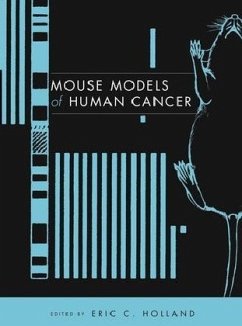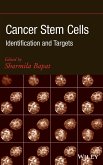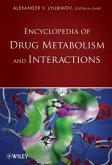This groundbreaking text systematically presents the principles, methodology, applications, and challenges of mouse models of human cancer. Divided into five sections, the primary focus of this book is the generation of genetically accurate models of specific human cancer types. The introduction covers nonspecific modeling systems, with chapters on animal handling, comparison of mouse and human developmental genetics and cancer, and pathology techniques. The following section covers methods for genetic manipulation of the mouse. The core section on diseases is organized by organ system, in which a brief overview of the biology of each of the main human tumor types and the current mouse modeling systems that mimic those tumors is discussed. The next section focuses on anatomic and molecular imaging techniques from CT and MRI to bioluminescence, fluorescence, and PET. The last section covers topics related to preclinical trials, from trial design to pharmacokinetics and finally regulatory issues. A final chapter provides a perspective on future directions for the field.
Mice have become the species of choice for modeling the complex interactions between tumor cells and the host environment. Mouse genetics are easily manipulated, and a growing array of technology exists for this purpose. Mouse models allow investigators to better understand causal relationships between specific genetic alterations and tumors, utilize new imaging techniques, and test novel therapies. Recent developments along these lines show great promise for the development of new anti-cancer treatments. Mouse Models of Human Cancer provides researchers and students with a complete resource on the subject, systematically presenting the principles, methodologies, applications, and challenges associated with this exciting field. Offering a survey of the latest research and a description of future areas of interest, this text: * Presents real experimental data * Describes organ site-specific mouse models * Clearly identifies suitable models for further drug testing * Critically analyzes current methodologies and their limitations * Features numerous recognizable expert contributors * Lists key Web sites, reagents, and companies From mouse handling and genetic engineering to preclinical trials, Mouse Models of Human Cancer is a comprehensive guide to using these models and relating them to human disease. Its uniform presentation describes organ-specific models in clinical, imaging, and molecular terms, and lays out the relevant genetics, experimental approaches, histological comparisons with human disease, and conclusions. Combining stellar chapter authors, rich illustrations, and clear, up-to-date coverage, Mouse Models of Human Cancer is an invaluable resource for advanced students and cutting-edge researchers.
Hinweis: Dieser Artikel kann nur an eine deutsche Lieferadresse ausgeliefert werden.
Mice have become the species of choice for modeling the complex interactions between tumor cells and the host environment. Mouse genetics are easily manipulated, and a growing array of technology exists for this purpose. Mouse models allow investigators to better understand causal relationships between specific genetic alterations and tumors, utilize new imaging techniques, and test novel therapies. Recent developments along these lines show great promise for the development of new anti-cancer treatments. Mouse Models of Human Cancer provides researchers and students with a complete resource on the subject, systematically presenting the principles, methodologies, applications, and challenges associated with this exciting field. Offering a survey of the latest research and a description of future areas of interest, this text: * Presents real experimental data * Describes organ site-specific mouse models * Clearly identifies suitable models for further drug testing * Critically analyzes current methodologies and their limitations * Features numerous recognizable expert contributors * Lists key Web sites, reagents, and companies From mouse handling and genetic engineering to preclinical trials, Mouse Models of Human Cancer is a comprehensive guide to using these models and relating them to human disease. Its uniform presentation describes organ-specific models in clinical, imaging, and molecular terms, and lays out the relevant genetics, experimental approaches, histological comparisons with human disease, and conclusions. Combining stellar chapter authors, rich illustrations, and clear, up-to-date coverage, Mouse Models of Human Cancer is an invaluable resource for advanced students and cutting-edge researchers.
Hinweis: Dieser Artikel kann nur an eine deutsche Lieferadresse ausgeliefert werden.








